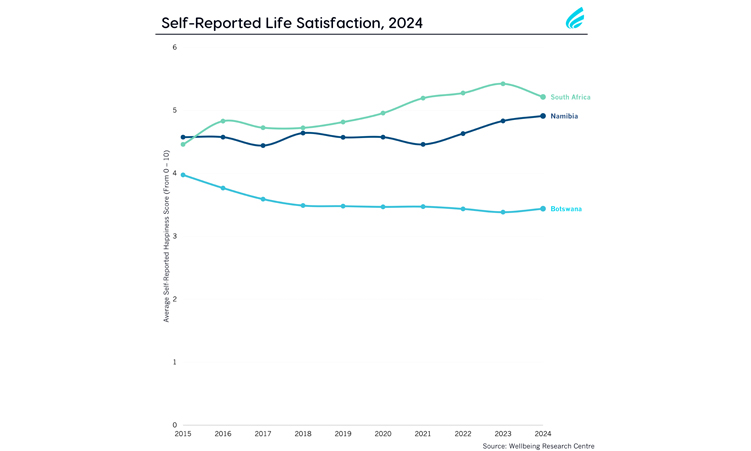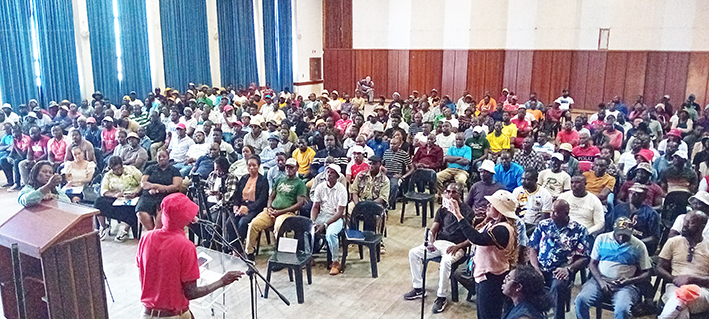THE impact of the global financial crisis on the African economy has been ‘seriously underestimated’, and the Namibian economy is no exception.
Donald Kaberuka, president of the African Development Bank, last week stated that African countries are badly affected by the crisis. Kaberuka said this after a committee meeting of finance ministers and central bank governors from ten African countries – including Namibia – to review the impact of the crisis on the continent in Cape Town last week. Trevor Manuel, South Africa’s finance minister, said at the meeting that the duration of the current economic pressure would not be short term, and could be expected to last at least another five years. He said that as a result of the crisis, in addition to decreased inward investment and aid flows, ‘trade finance was drying up, budget revenue was more difficult to raise and some investments were being scrapped, resulting in job losses.’ Just two weeks ago, South Africa announced more than 10 000 job losses in the mining industry. In Namibia, over 600 mineworkers have lost their jobs as a result of the closure of the Weatherly Mine, and mining job losses of up to 2 000 are expected. Up to now, however, responses from economists, Government officials and the Bank of Namibia itself had maintained that Namibia would remain relatively unaffected by the crisis. But an effect on the economy is inevitable, and Kaberuka’s remarks indicate that this effect is much larger than anticipated. Bank of Namibia (BoN) Governor Tom Alweendo attended and participated in the committee meeting. Asked whether the impact of the global financial crisis on Namibia had been underestimated, the Bank of Namibia, through its Corporate Communication Department, responded that it was difficult to predict the evolution of the financial crisis and how it would affect the country., adding that the Bank last year revised. ‘Although Namibia’s financial sector has not been directly affected by the global financial instability and the impact has been limited, the Namibian real economy, however, is expected to be adversely affected by the weaknesses in the global financial system. In other words, the global financial system will be weakened through the concomitant slowdown in the world economy and the shying away of investors from emerging markets,’ it said. The BoN further reports that the continued intensification and spread of the international financial crisis drew the global economy into a sharper than anticipated downward trajectory, and that this slowdown had adverse effects on commodity prices, ‘which in turn, are expected to depress export-oriented industries, including those in Namibia.’ It can be expected, however, that over time other industries could be negatively affected by the export-oriented industries’ weakened performance, which the Bank says will negatively affect the country’s domestic output in the short to medium term. In several countries across the globe, central banks have tried to boost economic growth by easing monetary policy with sharp decreases in interest rates and providing fiscal stimulus packages. The United States’ basic interest rate currently stands between 0 and 0,25 per cent, the UK has brought rates down to a record low of 1,5 per cent, Canada’s interest rate has been slashed to one per cent, and several other countries have followed suit in dropping rates to historical lows. To date, Namibia hasn’t required such dramatic slashes in the interest rate, but the last monetary policy review at the end of last year saw the Bank cutting its Repo Rate by 50 basis points, from 10,5 per cent to 10 per cent. Asked how it would advise African heads of state, and particularly the Namibian President, in responding to the global financial situation, the Bank emphasised the importance of stabilising the financial system by providing sufficient liquidity to banking and other financial institutions. ‘Governments should also consider how the reduction in production and jobs can be counterbalanced through appropriate fiscal policies,’ the Bank concludes. – nangula@namibian.com.na
Stay informed with The Namibian – your source for credible journalism. Get in-depth reporting and opinions for
only N$85 a month. Invest in journalism, invest in democracy –
Subscribe Now!










